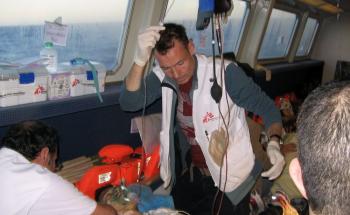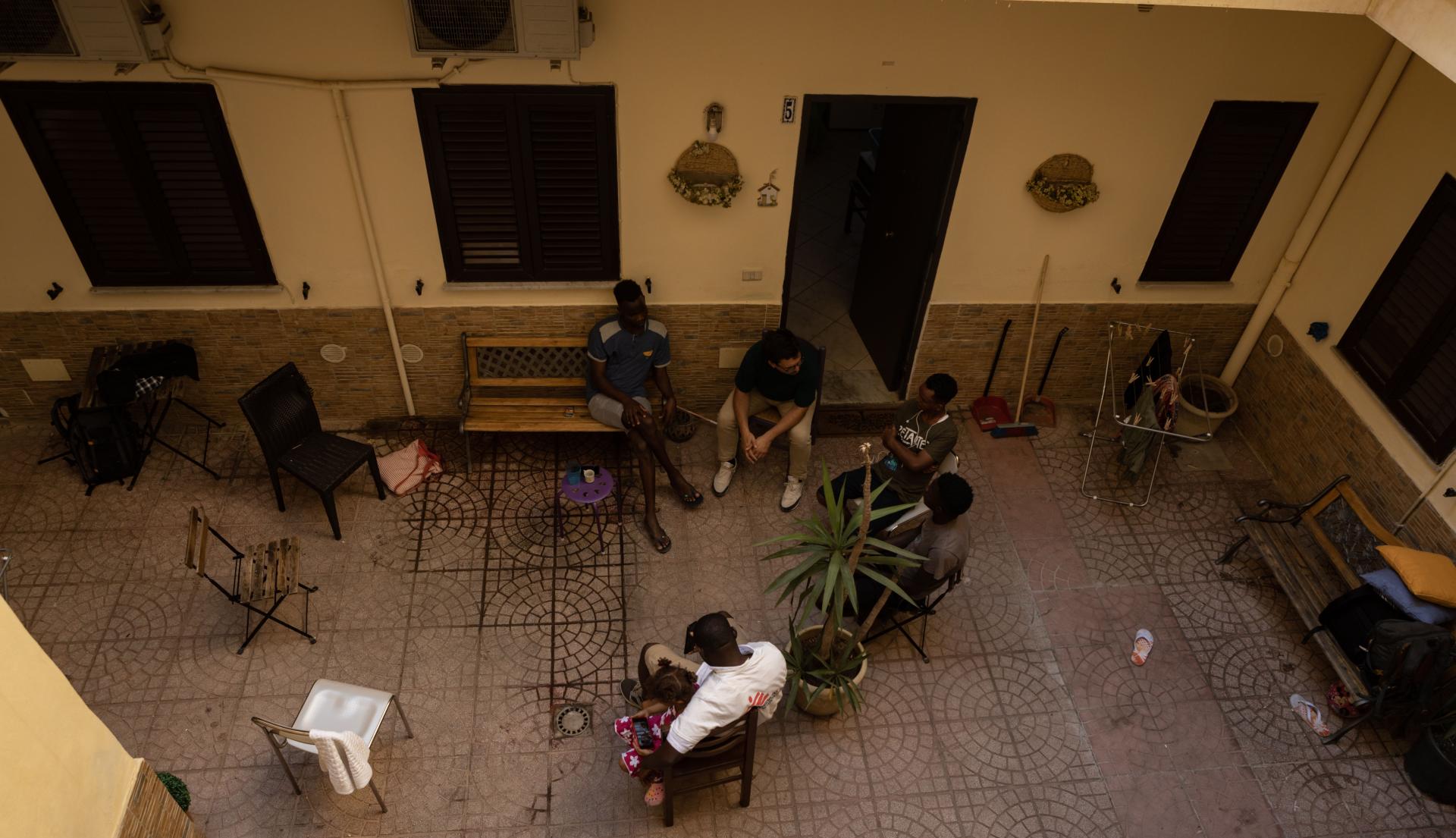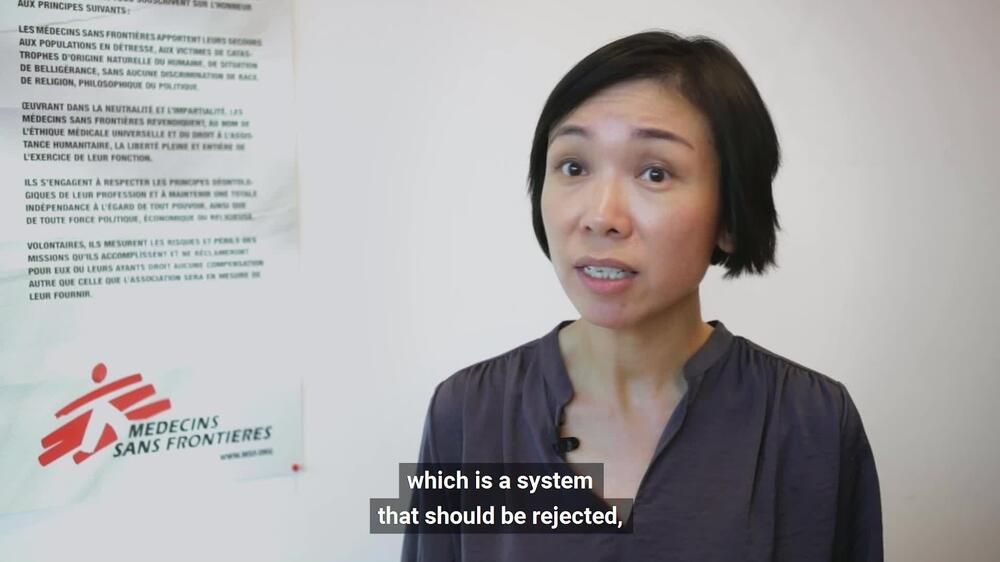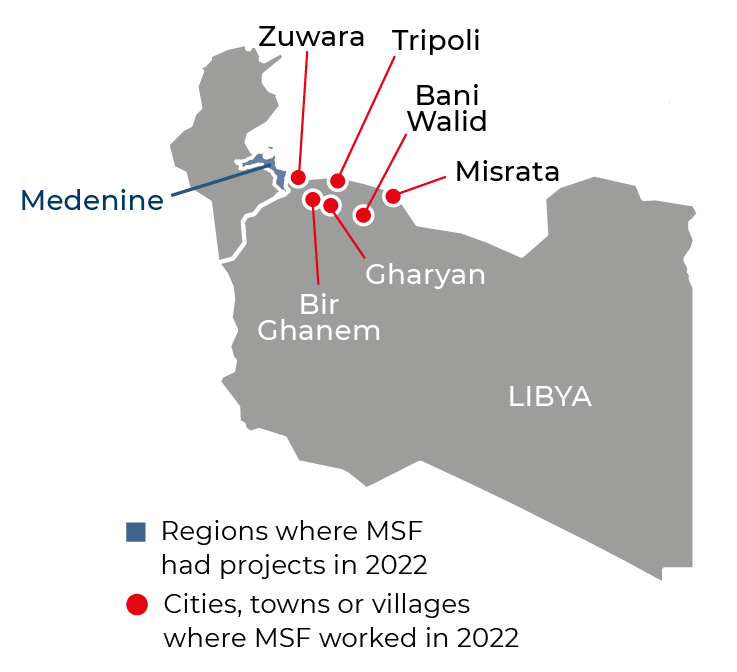

Libya
Our teams provided basic healthcare, mental health support, and sexual and reproductive health consultations in health facilities inside detention centres and in urban settings. We refer patients to hospitals for specialised care. We also offered protection services, aiming to identify people with vulnerabilities and referred them to other organisations in Tripoli who could meet their specific needs.

Libya Head of Mission, Beatrice Lau
Dire conditions for migrants and refugees in detention centres in Libya
Our returned Head of Mission, Beatrice Lau describes the conditions for migrants and refugees in detention centres in Libya. MSF suspended activities in the detention centres in Tripoli in late June 2021, as a response to the level and rate of violence observed towards migrants and refugees held indefinitely in Libya’s detention centres. Despite this latest decision, efforts to intercept, forcibly return and arbitrarily detain men, women and children in detention centres in Libya are ongoing.
Our activities in 2022 in Libya
Data and information from the International Activity Report 2022.
222
222
€11.5 M
11.5M
2011
2011

IN 2022

49,900
49,9
4,070
4,07
340
34
